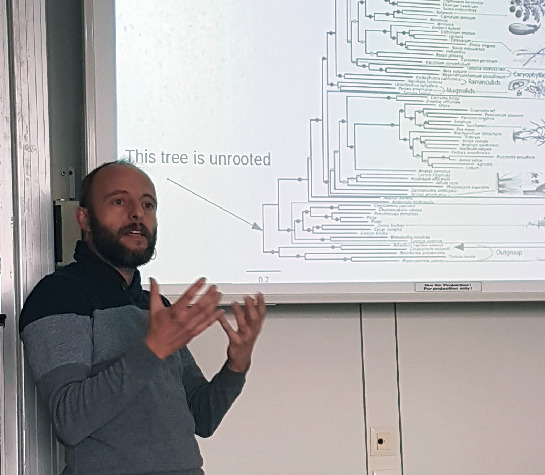RAxML: 20 Years of Open-Source Software Development in Evolutionary Biology
In this presentation, I will dig into the 20 years of development of the RAxML software for phylogenetic tree computation. I will explain why it is open-source, what it computes, the challenges we encountered, and why we rewrote RAxML from scratch 4 years ago.
Bio
Alexandros (Alexis) Stamatakis studied computer science at TU Munich and ENS Lyon (with internships in Athens, Paris, and Madrid). In 2001 he received his diploma in computer science from TU Munich.
In 2004 he received his PhD (also at TU Munich) for work on algorithms and parallel computing for phylogenetic inference (reconstruction of evolutionary trees using DNA data).
He continued working in the area of evolutionary Bioinformatics and parallel computing as a PostDoc at the Institute for Computer Science in Heraklion Greece (2005-2006) and at the Swiss Federal Institute of Technology at Lausanne (2006-2008).
In early 2008 he returned to Munich to start his own independent junior research group (DFG Emmy-Noether grant), initially at LMU and then at TU Munich.
In fall 2010 he moved to the Heidelberg Institute for Theoretical Studies (HITS) to start his new job as permanent research group leader of the computational molecular evolution group that also entailed the management of the entire IT and HPC infrastructure at HITS until July 2013.
In summer 2012 he was appointed as full professor at the faculty of computer science of the Karlsruhe Institute of Technology. This appointment is in conjunction with his position at HITS. From 2012-2017 he also held an appointment as adjunct professor at the Dept. of Ecology and Evolutionary Biology at the University of Arizona at Tucson.
In 2023 he joined the Foundation of Research and Technology - Hellas again to assume his new role as ERA chair from 2023 - 2027, while maintaining an appointment as associated group leader with HITS and being a full professor on leave at KIT.
He was listed on the 2016, 2017, 2018, 2019, 2020, 2021, and 2022 ISI Web of Science (Clarivate Analytics) highly cited researchers lists.
His main research interests are algorithms, parallel computing, parallel architectures and evolutionary Bioinformatics.
